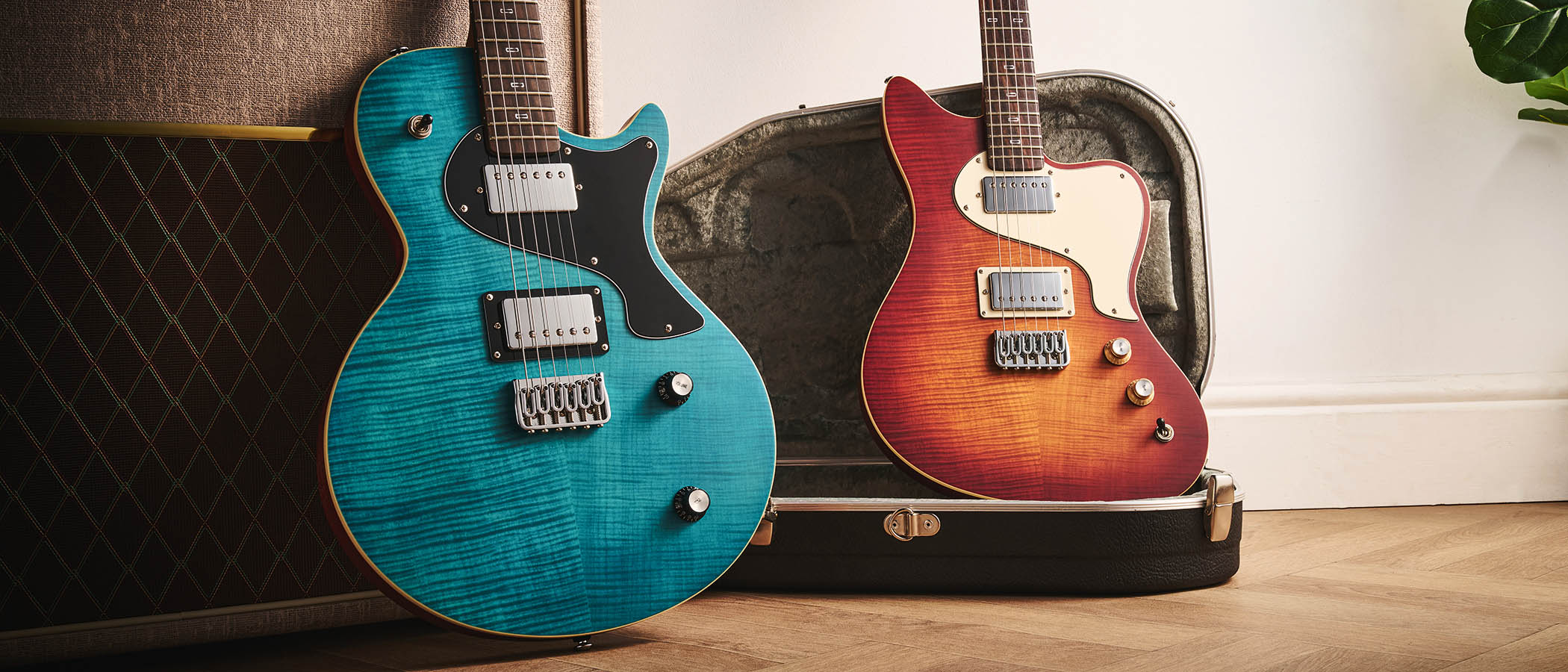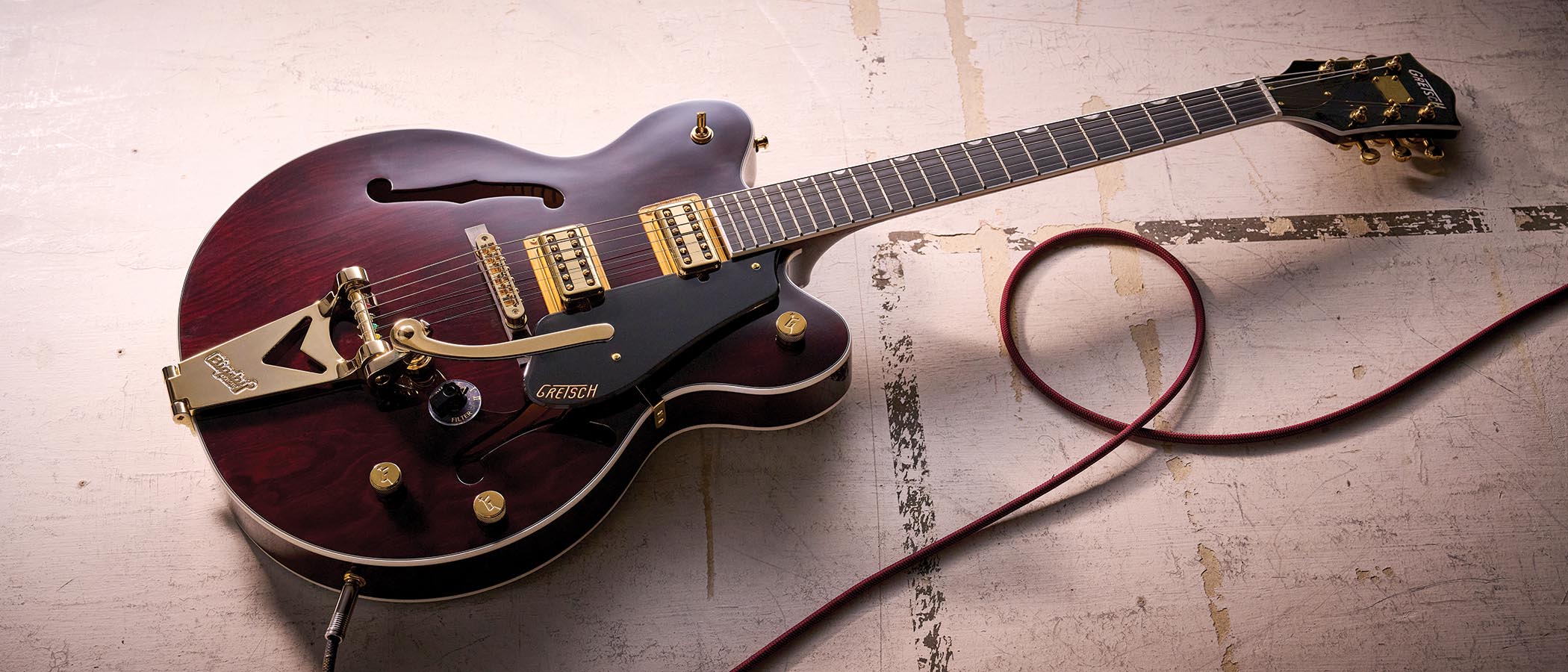Guitar World Verdict
PJD’s style has always been about unfussy function, credible sounds, good playability and tuning stability, and these guitars uphold those key elements very well. An impressive debut with a lot more to come.
Pros
- +
Clean build with roasted maple neck.
- +
Good light weight, neck shape and playability.
- +
Locking tuners.
- +
Rock-aimed voice.
- +
Gig‑ready; price point.
Cons
- -
Coil-splits would be good.
You can trust Guitar World
What is it?
It’s hard to keep up with York, UK-based PJD Guitars. Only recently it restored one of its original models as the Carey Classic to celebrate the company’s 15th anniversary, but behind the scenes Leigh Dovey and Josh Parkin have been working on a new project: finding a partner in Indonesia that could replicate their UK craft at a considerably lower price point.
Now, this is no unique vision. Manson Guitar Works, as just one example, has successfully outsourced builds to Indonesia alongside building an increasing number of all-UK-made models, and plenty of UK-designed brands bypass any kind of UK building and go direct to Asia.
The ‘offshore’ model for the big boys goes back decades, of course, but many of those, not least Fender and Gibson, are aiming to replicate very well-known heritage models. As good as the brand is, and with an ever-increasing fanbase, PJD is still a small fish in a big pond.
The Indonesian-made electric guitars will fall under the ‘Origin Series’ title, with these two Pro models, which aim to clone the UK Elite models, topping the initial new range.
We can look forward to PJD’s other shapes, the York and Woodford, plus St John and Carey, appearing as the new Standards at £599 in solid gloss colours, while the Carey and St John Apprentice will start things off at £499.
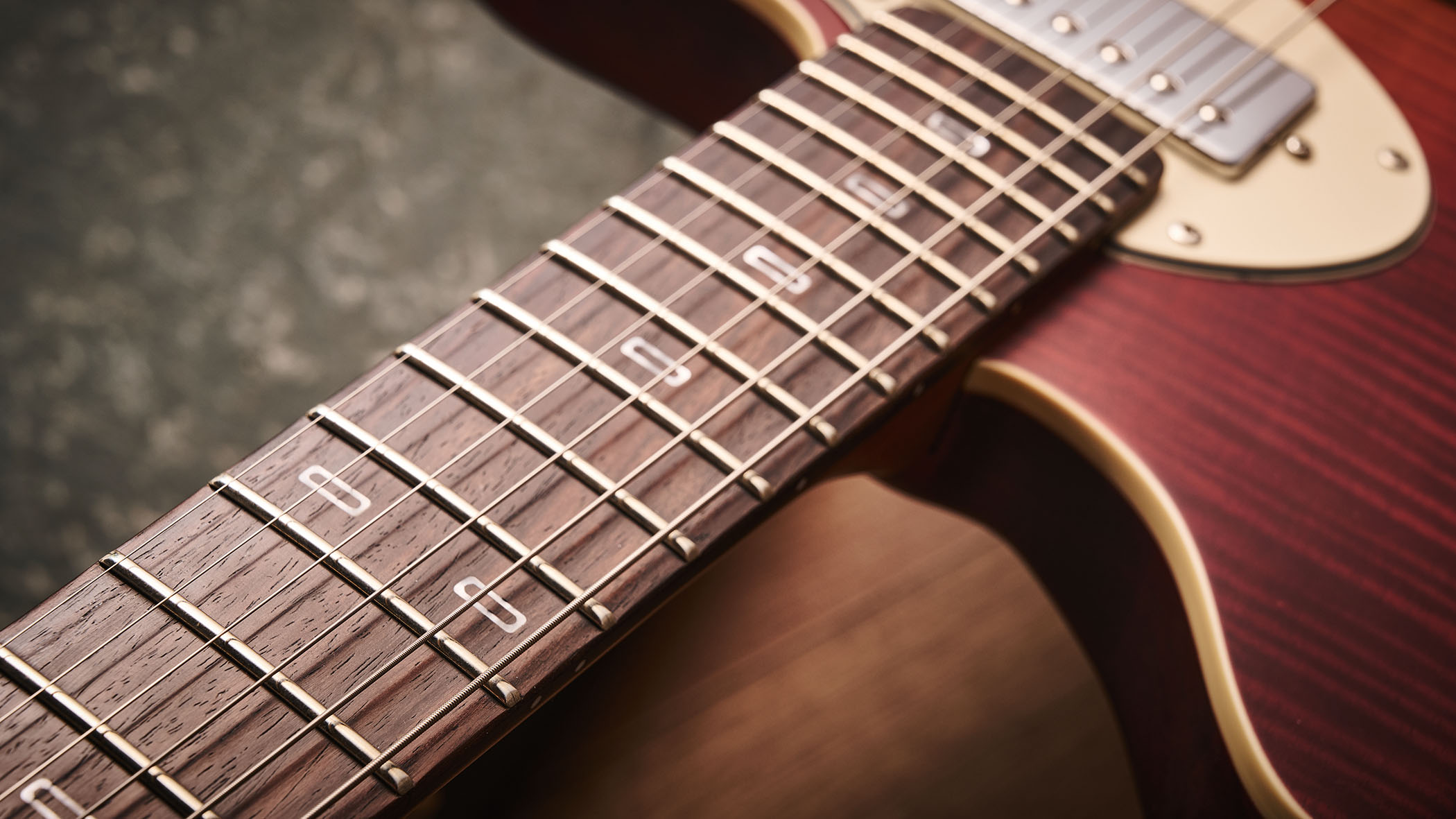
As to the UK, well, the customisable Elite models will stay the same at £3,199. There will be new Vintage models (Valhalla, York, Woodford, St John and Carey) with gloss NOS nitro finishes, while the St John and Carey Classic models, with their chambered swamp ash bodies, will replace the current Standard models at £1,899.
A new, more modern-rock design called the Romulus will be £1,899 with vibrato, and the fixed-bridge version will be the new start point of the UK range at £1,699.
All the latest guitar news, interviews, lessons, reviews, deals and more, direct to your inbox!
What’s that song? When the going gets tough, the tough get going.
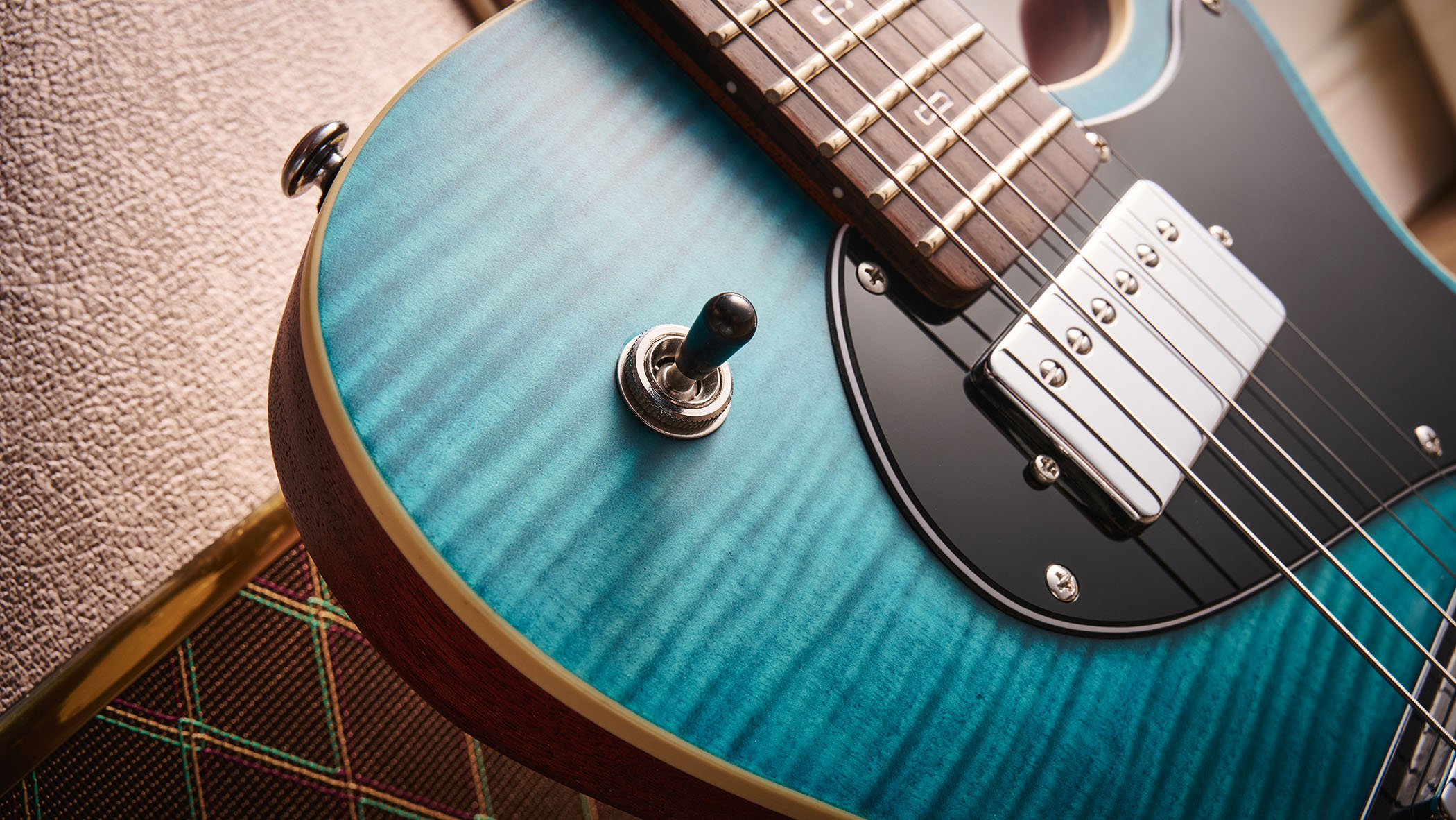
In Build
Not sure what to expect when two boxes turned up at Guitarist HQ, we were a little surprised. At first glance both the new Origin Pro models initially looked like the UK-built Elite models, which is no bad first impression for actual guitars that cost less than a quarter of their price. And that’s the point: these ‘offshore’ Pros aim to clone the style of the high-end UK PJD Custom Shop models.
Rather than the shiny mirror gloss favoured by many, both guitars come in a classy overall satin, the backs are more open-pore in style, and the guitars have good weights between 3.26kg (7.17lb) and 3.42kg (7.5lb) – the offset St John being the lighter of the two.
PJD is known for using lightweight chambered swamp ash and solid obeche, but the Pros are crafted from solid mahogany (also used on the UK Elites): the bodies are three-piece, topped with a thinly flamed figured maple veneer and cleanly scraped cream plastic binding, with an overall thickness of 40mm.
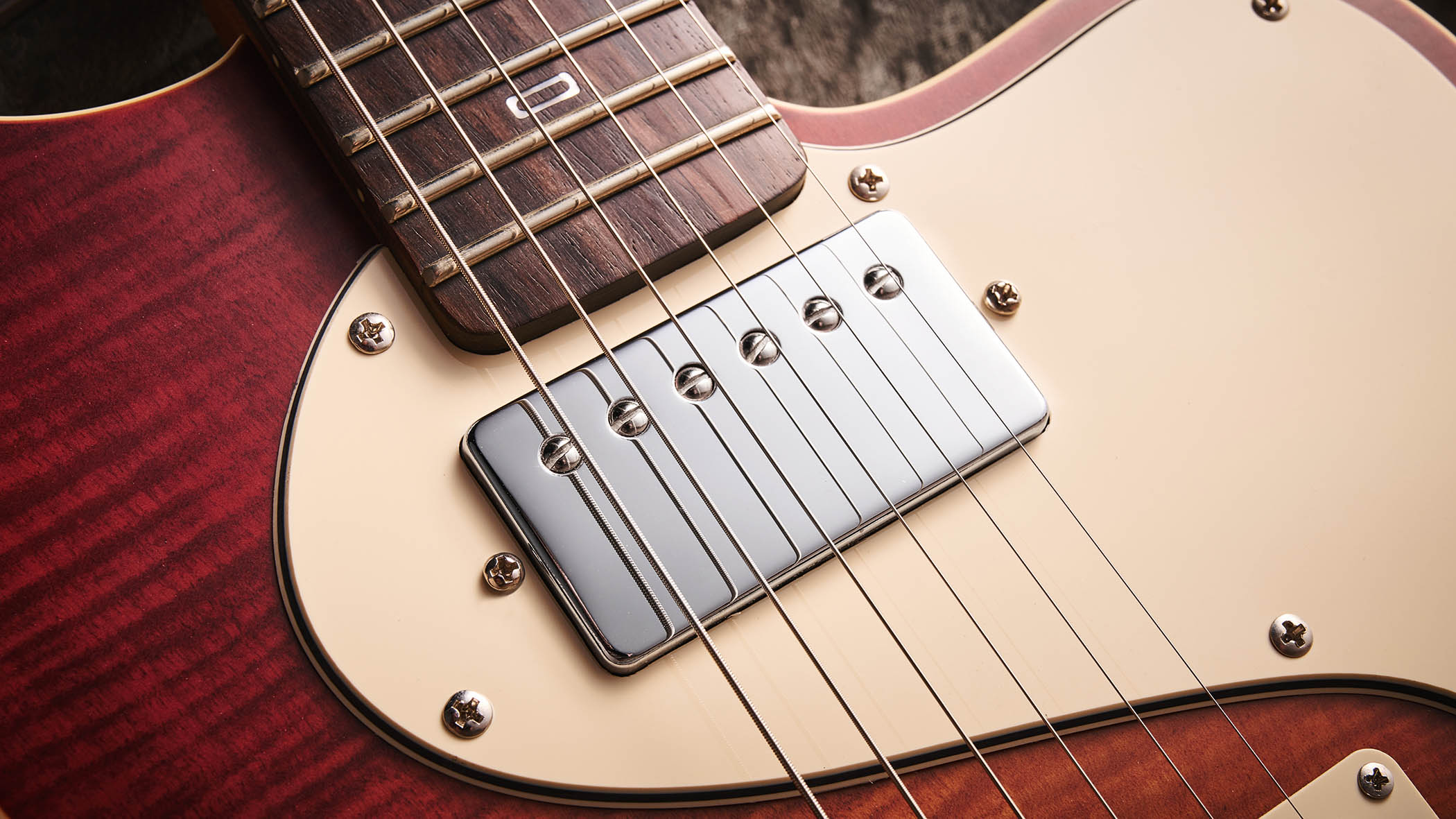
The necks virtually match the colour of the mahogany bodies but are actually slab-sawn dark-roasted maple. One difference here is that instead of using machine bolts that thread into inserts in the neck (a standard feature of PJD’s UK builds since day one), the Origins use standard neck screws which sit in recessed washers on the lightly dome-edged heel.
Despite the different outlines of the UK models, they all use the same 648mm (25.5-inch) scale length, and again that’s replicated here along with the same distinctive Fender-style headstock.
One obvious identifier of the Origin models is the silver PJD logo; the UK ones use a gold decal. These initial Origin designs come with rosewood fingerboards only (ours are a decent-looking deep brown), while the PJD hallmark hollow rectangle face inlays are used, albeit of slightly lower contrast to the UK ones.
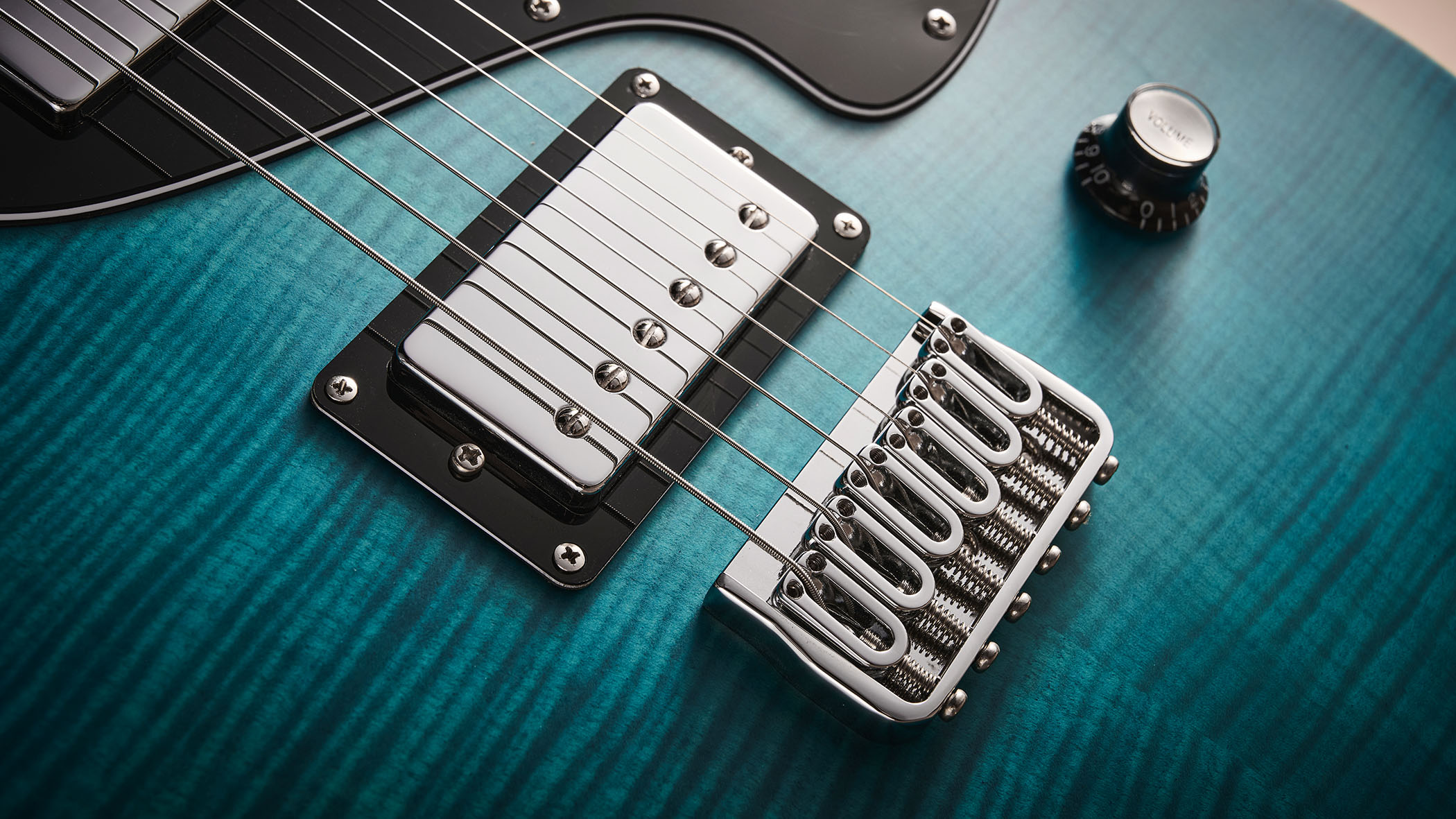
The style of the six-saddle string-through bridge of the UK models is retained, although the bridge here – inspired by a Hipshot design and one we’ve recently seen on Shergold’s Telstar – is actually quite classy with its rounded walls and ‘hollow’ block saddles.
The tuners are an arguable upgrade over the non-locking vintage style used on the current UK Standards
The tuners are an arguable upgrade over the non-locking vintage style used on the current UK Standards: these are rear-locking with black coated metal buttons.
PJD’s style is cloned with the bridge humbucker sitting in its own oversized mounting ring, while the neck pickup is mounted to the laminate scratchplate, the same material as that pickup ring.
The Carey’s rear-mounted volume and tone controls are widely spaced, the pickup selector toggle on the upper horn, while the St John’s controls are more closely spaced and the toggle moves to below the tone control – again, just like the layout of the UK models.
Both guitars also use what looks like the same style chromed metal ‘football’ jack plate, firmly side mounted and very gig-ready. Overall, these are classy designs with echoes of the past but a nicely contemporary presentation.
Specs
PJD Origin Series Carey Pro
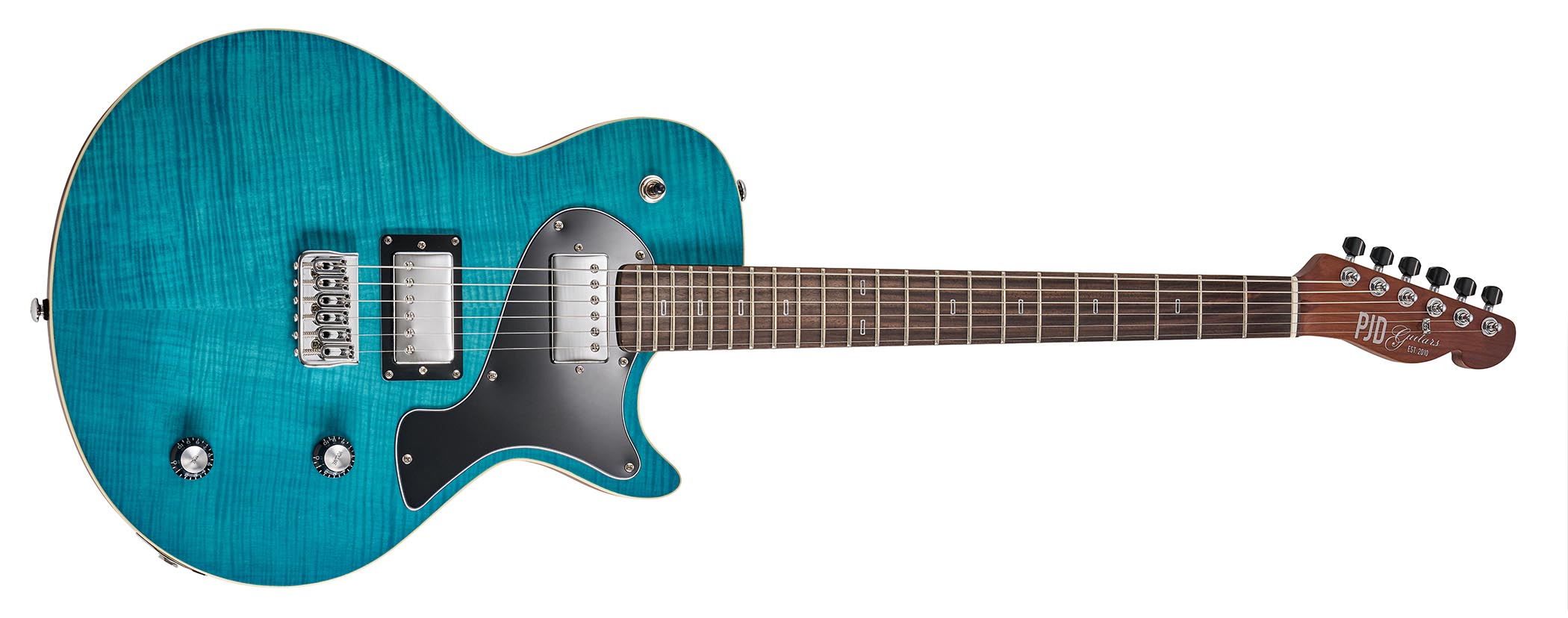
- PRICE: £799 (approx $1,059 inc gigbag)
- ORIGIN: Indonesia
- TYPE: Single-cut solidbody electric
- BODY: Mahogany with cream bound thin maple top and 5A figured maple veneer
- NECK: Roasted maple, bolt-on
- SCALE LENGTH: 648mm (25.5”)
- NUT/WIDTH: Bone/42.5mm
- FINGERBOARD: Rosewood, rectangular pearloid inlays, 254mm (10”) radius
- FRETS: 22, medium-jumbo
- HARDWARE: Through-strung walled bridge with 6x hollow saddles; rear-lock tuners with black metal buttons – chrome-plated
- STRING SPACING, BRIDGE: 53mm
- ELECTRICS: 2x PJD-designed Wadfather ‘Origin’ covered humbuckers, 3-way toggle pickup selector switch, master volume and tone
- WEIGHT (kg/lb): 3.42/7.5
- OPTIONS: Colour only
- RANGE OPTIONS: The new Indonesian-made guitars will start with the St John and Carey Apprentice (£499), while the York, Woodford St John and Carey Standards will retail at £599
- LEFT-HANDERS: No
- FINISHES: Sea Blue (as reviewed), Original Burst, Forest Green Burst, Charcoal Burst – all satin polyester with open grain back
PJD Origin Series St John Pro
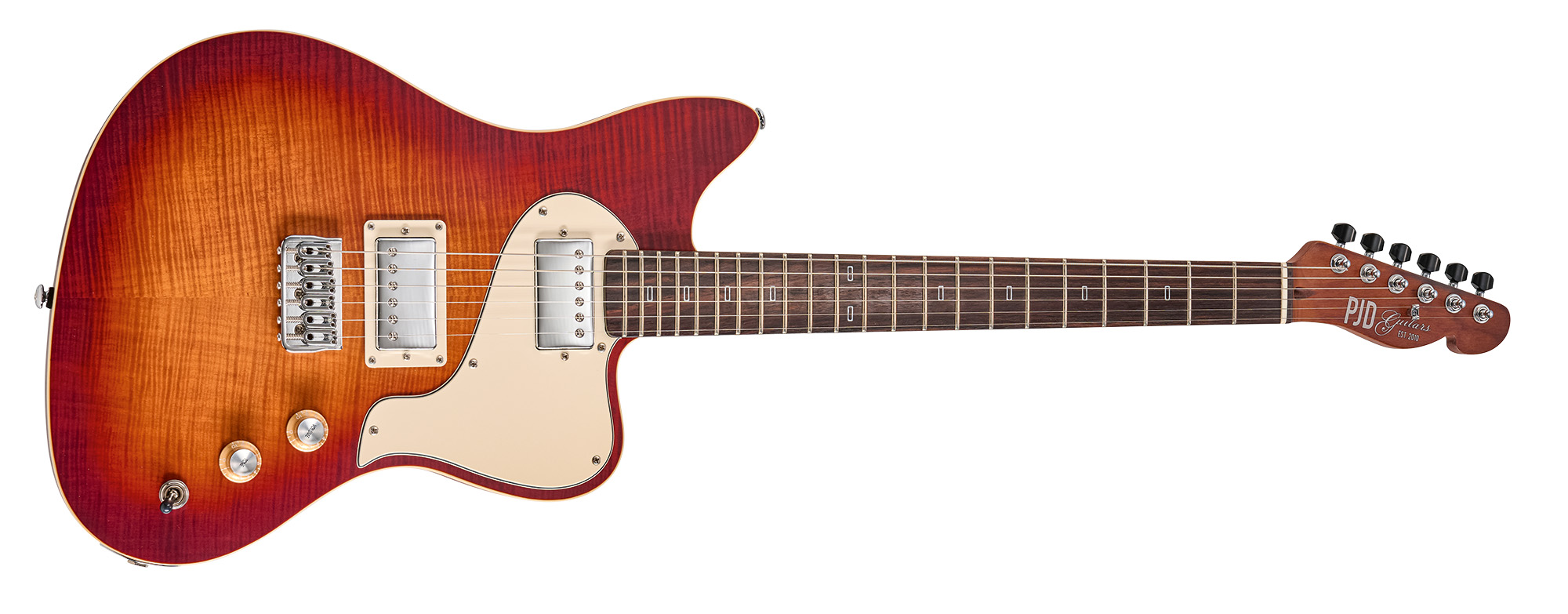
- PRICE: £799 (approx $1,059 inc gigbag)
- ORIGIN: Indonesia
- TYPE: Offset-shaped solidbody electric
- BODY: Mahogany with cream bound thin maple top and 5A figured maple veneer
- NECK: Roasted maple, bolt-on
- SCALE LENGTH: 648mm (25.5”)
- NUT/WIDTH: Bone/42.5mm
- FINGERBOARD: Rosewood, rectangular pearloid inlays, 254mm (10”) radius
- FRETS: 22, medium-jumbo
- HARDWARE: Through-strung walled bridge with 6x hollow saddles; rear-lock tuners with black metal buttons – chrome-plated
- STRING SPACING, BRIDGE: 53mm
- ELECTRICS: 2x PJD-designed Wadfather ‘Origin’ covered humbuckers, 3-way toggle pickup selector switch, master volume and tone
- WEIGHT (kg/lb): 3.26/7.18
- OPTIONS: Colour only
- RANGE OPTIONS: See Carey Pro
- LEFT-HANDERS: No
- FINISHES: Original Burst (as reviewed), Sea Blue, Forest Green Burst, Charcoal Burst – all satin polyester with open grain back
- CONTACT: PJD Guitars
Playablity and sounds
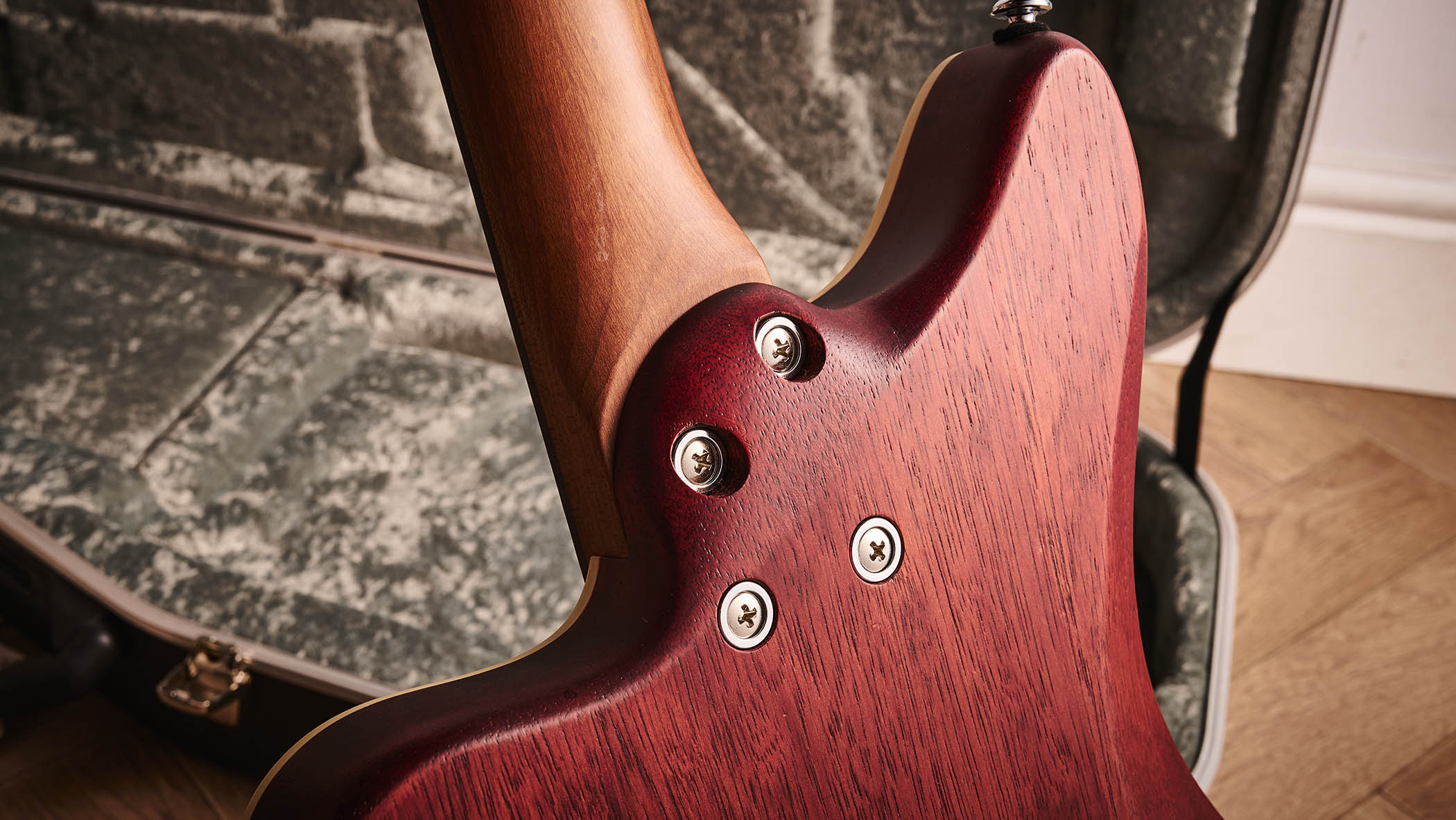
While both guitars feel and weigh more like the solidbodies they’re compared to, our original semi-hollow Carey Standard (5.79kg/ 12.8lb), they both feel a little more conventional, too.
Both have well-shaped neck profiles very similar to PJD’s standard profile: the St John measures 20.5mm at the 1st fret, 22.9mm at the 12th, while the Carey is 21mm at the 1st and 22.1mm at the 12th.
The shapes, too, are very subtly different with the Carey a pretty classic medium C and the St John with a very slightly flatter back. Both have the same very Fender-like width, though: 42.4mm at the nut and averaging 51.6mm at the 12th. Despite the very small differences, not least with their satin backs, both feel very good, certainly more modern than vintage-style big.
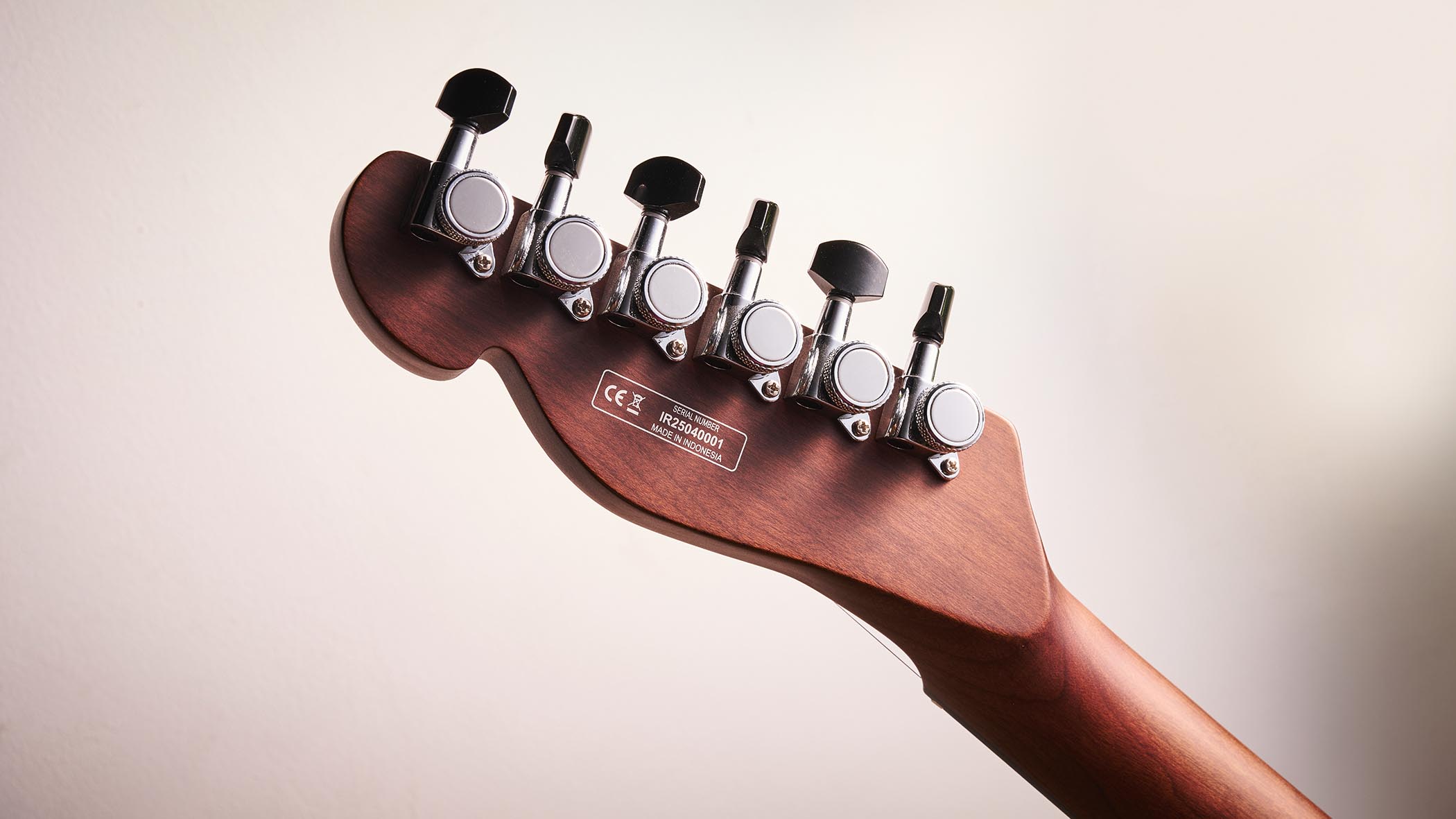
The fret gauge is a little bigger in width (2.89mm) than the Jescar wire used on the UK models, but it still has a good height of approximately 1.4mm, once more giving these Pros a slightly more contemporary rock feel.
The fingerboard radius measures 254mm (10 inches) and the setups on both are really good. The frets are well polished, and while the fingerboard edges aren’t really rolled, they’re not sharp, either.
Both our samples have a pretty similar acoustic response, a lively, strong-sounding yet subtly smooth ring with clear but not overpushed high-end. Plugged in, it’s obvious that PJD is shooting for a rockier intention with the bridge pickup’s overwound midrange punch, which sits just as well with lower-gain classic rock amp voices as it does with heavier metal tones.

Pull back the volume and it rounds out a little for chunky rhythm, while the pickup mix adds some sparkle. The neck pickups on both guitars certainly aren’t overpotted and produce some heavier blues wails with some appealing snap on cleaner tones.
In fact, the three sounds here are all pretty credible, and in use both guitars are simple and fast drives. Neither guitar would be our first choice for janglier ‘single coil’ duties, of course, but you might be surprised by the overall range of voices, clean or driven. At this price point, we really have no complaints.
Verdict
Verdict: ★★★★½
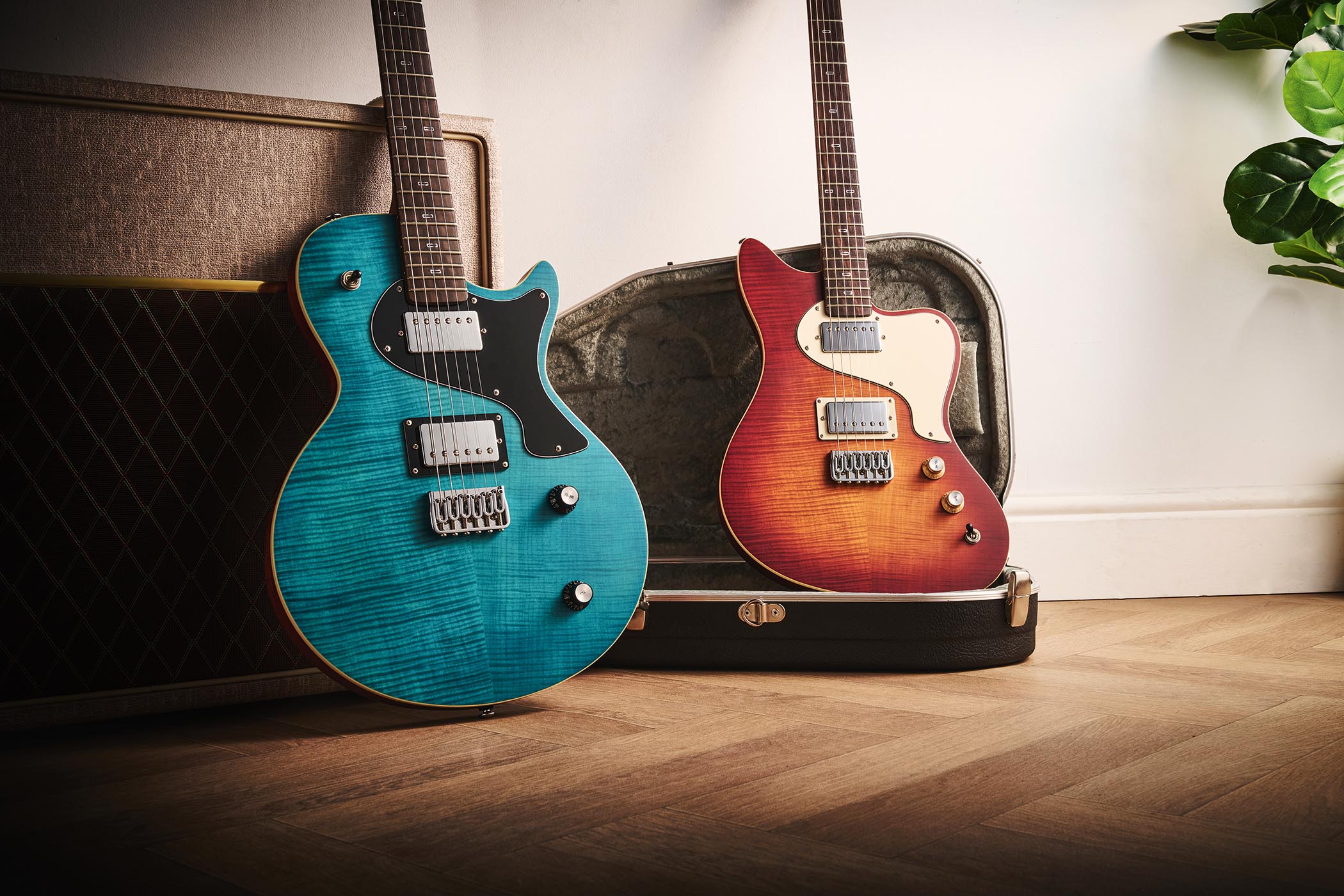
There’s plenty of modern, boutique-like style here. And while it doesn’t quite match the detail of PJD’s Elite UK level, visually they’re pretty close in looks and, importantly, not a million miles away in playing feel.
Yes, the sounds may be a little generic, but they’re also reassuringly familiar; they’re nicely in-tune and stable guitars
It makes both instruments very fit-for-purpose and gig-ready and, to be honest, we’re struggling to find any negatives.
Yes, the sounds may be a little generic, but they’re also reassuringly familiar; they’re nicely in-tune and stable guitars and, irrespective of their origin, we really can’t knock the craft.
Guitar World verdict: PJD’s style has always been about unfussy function, credible sounds, good playability and tuning stability, and these guitars uphold those key elements very well. An impressive debut with a lot more to come.
Hands-on videos
The Guitar Geek
Andertons
- Best electric guitars under $1,000 in 2025: 8 killer options for beginners and pros
- This article first appeared in Guitarist. Subscribe and save.

Dave Burrluck is one of the world’s most experienced guitar journalists, who started writing back in the '80s for International Musician and Recording World, co-founded The Guitar Magazine and has been the Gear Reviews Editor of Guitarist magazine for the past two decades. Along the way, Dave has been the sole author of The PRS Guitar Book and The Player's Guide to Guitar Maintenance as well as contributing to numerous other books on the electric guitar. Dave is an active gigging and recording musician and still finds time to make, repair and mod guitars, not least for Guitarist’s The Mod Squad.
You must confirm your public display name before commenting
Please logout and then login again, you will then be prompted to enter your display name.
